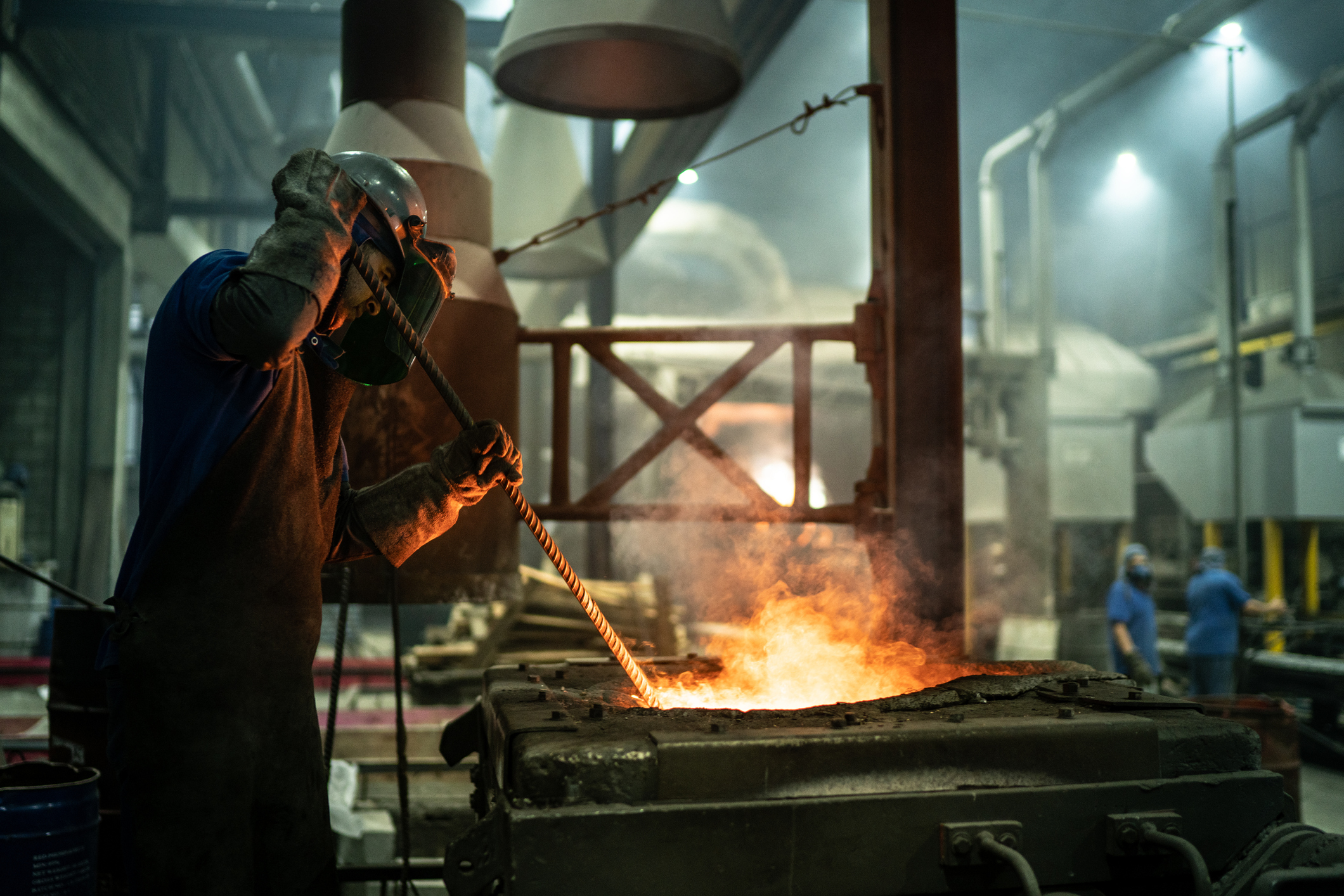How the carbon content of steel affects forgeability
Several factors affect the forgeability of steel. In today’s blog, we’ll be exploring one of them– carbon content. Before we delve into carbon’s effect on the forging process, it’s important we first understand what forgeability is. 
What is Forgeability?
Forgeability is a combination of flow stress, the ability to fill a die, and the degree of deformation that can be carried out without failure (due to surface or internal cracking).
In general, forgeability increases with climbing temperatures. However, for some metals, there is a max temperature above which some adverse effects occur.
What is Steel?
Steel is the world’s most important engineering and construction material, used in just about every aspect of our lives.
Steel is an alloy of iron and carbon. It retains iron’s metal characteristics while containing anywhere from 0.02% to 2% of carbon. These alloys may also contain small amounts of manganese, silicon, and copper.
To date, there are more than 3,5000 different grades of steel with each one demonstrating different physical, chemical, and environmental properties. At CanForge, we utilize a variety of steel grades in our forgings, including carbon steel.
Carbon steel is a metal alloy of carbon and steel. It can be further categorized into four groups, depending on its carbon content:
- Low carbon steel or mild steel: Contains 0.04% to 0.3% carbon and encompasses grades 1018 and 1020. This is the most common grade of carbon steel. The lower carbon content causes the material to be more ductile and less brittle, making it a good choice for forging.
- Medium carbon steel: Contains 0.31% to 0.6% carbon and a manganese range of 0.6% to 1.65%. This type of carbon steel demonstrates a higher level of manganese and as a result, can be heat treated and quenched to further adjust its microstructure and mechanical properties. Medium carbon steel includes steel grade 1141.
- High carbon steel: Contains 0.6% to 1% carbon, and 0.3% to 0.9% manganese. High carbon steel demonstrates exceptional hardness and toughness. These types of steel are also very wear resistant as they are usually hardened and tempered.
- Very high carbon steel: Contains 1.25% to 2% and is referred to as an experimental alloy. Tempering can produce steel with a great hardness level.
Carbon Content and Forgeability
The amount of carbon found in steel determines the properties of forged products. As carbon content increases in steel, hardness and strength rise. This is primarily the result of carbides that form at the high temperatures experienced during forging. These carbides contrive extremely strong steels that can withstand high amounts of force without breaking or deforming under pressure. This results in an almost linear relationship between the carbon content and the hardness of the steel.
At CanForge, we supply the following grades of carbon steel:
- SA 105
- LF-2
- F-22
- 1018
- 1020
- 1026
- 1141
Depending on the amount of carbon present in the material, carbon steel forgings may also be hardenable by heat treatment to increase yield and impact strength as well as wear resistance.
Supplying superior forged steel products since 1912
CanForge is pleased to supply exceptional forged products to customers across North America. Carbon steel forgings encompass an important part of our line of products because of their strength, fatigue resistance, ductility, hardenability, and other mechanical properties. Contact us today to learn more about our high-quality forged steel products.
